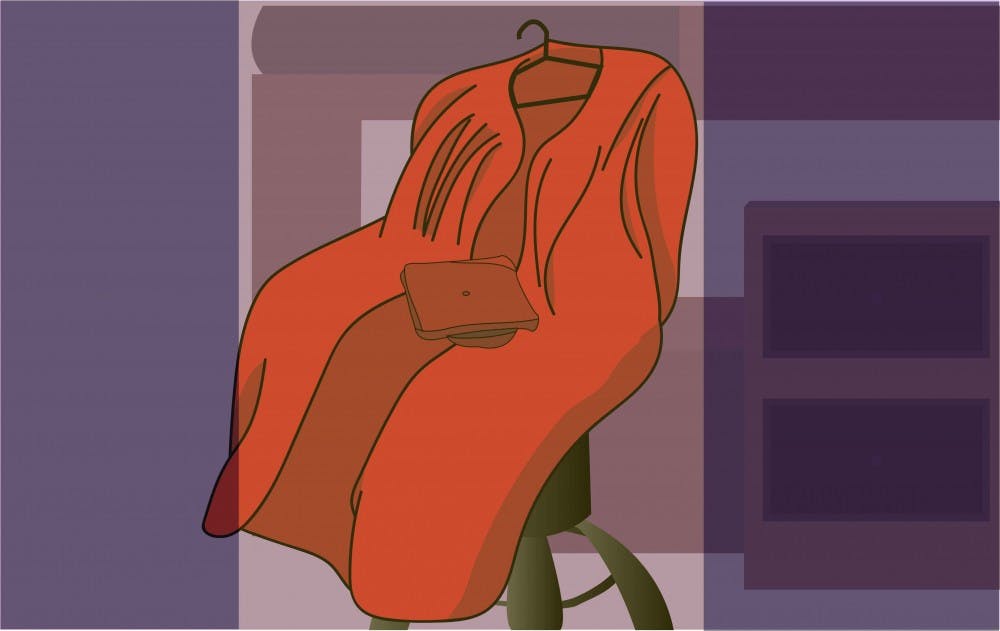With spring registration around the corner and graduation in view, senioritis, commonly used to describe senior students' lack of motivation, is making its way through ASU's senior class.
For Emily Bosak, a senior studying marketing and psychology, senioritis is a mix of a lack of motivation and uncertainty about her future.
“I am a bit nervous to try and figure out housing and how to maintain relationships I’ve made in college in the real world, as well as adjusting to an 8-to-5 schedule,” Bosak said.
Bosak said she is ready to move on, so her lack of motivation is attributed to her almost-secured future after college.
“I’ve already been offered a job," Bosak said. "I think it’s just annoying at this point because I see my future, and I know I still have projects and classes to finish before I can graduate and start my life.”
However, according to Aaron Krasnow, the associate vice president of Health and Counseling Services at ASU, senioritis is a mythical disease without diagnosable evidence.
“Senioritis is not an actual thing,” Krasnow said. “It is a collection of feelings and behaviors that tend to make people feel less motivated when describing themselves near a finish line – feeling a decrease in energy and attention with sometimes anxiety and fear towards the future.”
Krasnow explained that senioritis can act as an umbrella term to describe depression and anxiety surrounding one's future.
“There remains a stigma associated with mental health concerns like depression, anxiety and relationship concerns,” Krasnow said. “One thing that happens as a result of the stigma (is that) people often search for terms that are more acceptable. We are are still not at a point in society where someone can say, 'I'm feeling depressed or anxious about my future.'"
Krasnow said that students may classify what they're going through as senioritis to express distress that is often times associated with impending or current change.
“It is an overarching placeholder term referring to symptoms that are harder to say out loud,” Krasnow said.
According to Phillip Scharf, an assistant vice president for student success initiatives for ASU's Educational Outreach and Student Services, senioritis affects all students, regardless of their year in school.
“Even freshmen feel the burnout and just want to get on with the next things,” Scharf said. “With seniors, it’s just more of a cumulative experience.”
According to Scharf, behavioral changes consistent with senioritis occurs more commonly once a student has been accepted into a program or have secured employment.
“Students can stop showing up to things they’ve committed to,” Scharf said. “Or they don’t put the efforts towards those things that they may have before. In extreme cases, students will not complete a minor or major.”
According to Krasnow, the experience of change can be stressful, especially because the design of college revolves around structured change. Intense, unstructured change can cause symptoms associated with senioritis.
Krasnow said that as long as academics are based on semesters, midterms, breaks, A/B sessions and other time blocks, individuals will have stressful responses to those limits. He said the key is for students to interpret what those structures are rather then ascribing a certain sort of meaning to deadlines.
“When a senior is coming up on their last semester, the word 'last' can be experienced as positive, can be experienced with a negative response or with a balanced response," Krasnow said. "That interpretation of the structure is a large indicator of how an individual can manage the stress associated with the structure.”
According to Scharf, ASU is putting valiant efforts towards upperclassmen's persistence and retention to minimize the risk of losing upperclassmen during their critical last semesters.
“We spent a lot of time ensuring that the first-year experience is engaging and positive," Scharf said. “We're needing to shift our energies towards making those experiences different but still as wonderful to make sure that juniors and seniors are feeling engaged.”
Scharf said that ASU staff members have adapted programs to encourage students with less than a year left in school to finish their degree.
At ASU Counseling Services, professional counseling services, including a 24/7 crisis hotline, are available to enrolled students.
Krasnow also recommends the ASU Wellness webpage as a great resource to learn more about managing stress and using exercise as a way to treat mild stress and anxiety.
Overall, Krasnow said that, for students dealing with symptoms of senioritis, "a neutral approach to structures and to life as a whole, is the best way to deal with it.”
Reach the reporter at mshrikan@asu.edu and follow @MayaShrikant on Twitter.
Like The State Press on Facebook and follow @statepress on Twitter.




